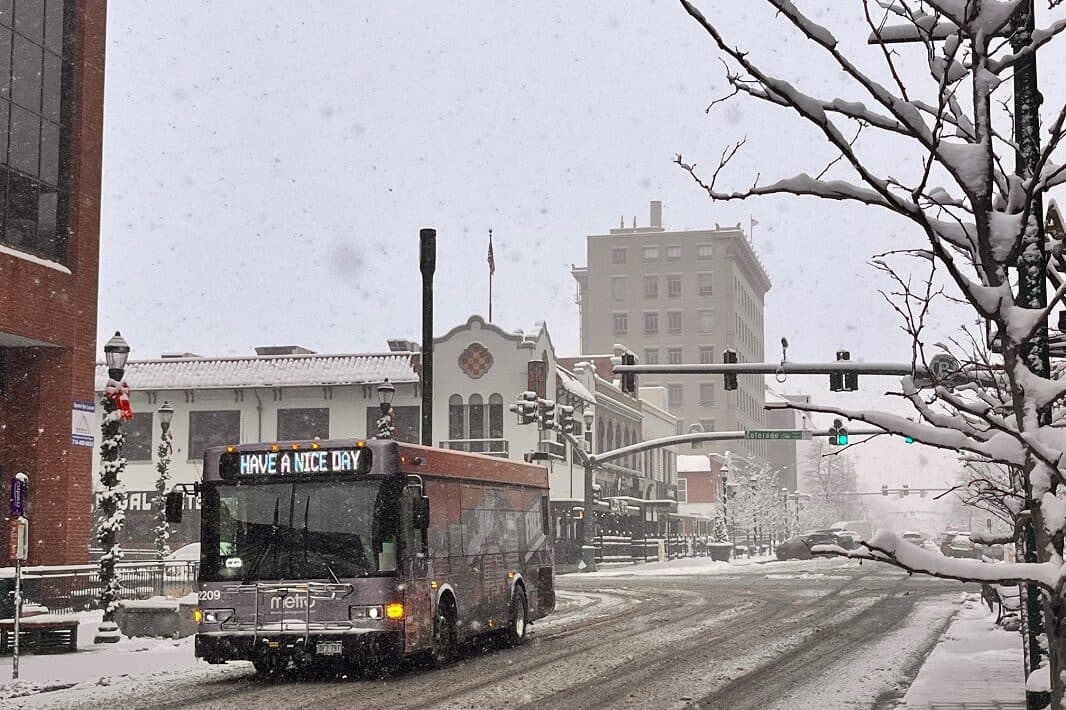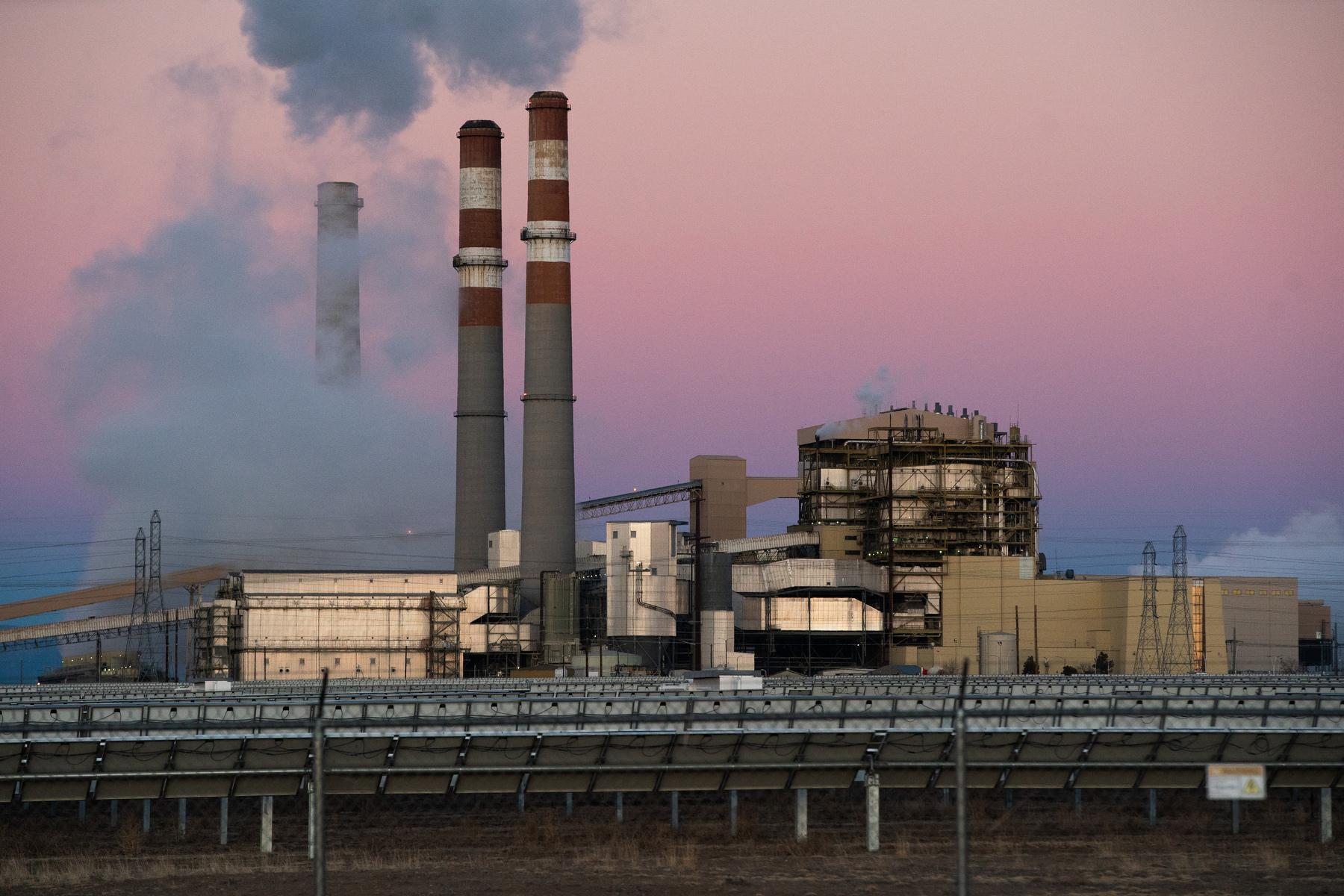The national conversation we’re having on guns is particularly painful in Colorado, where Columbine and Aurora are still active wounds. And like the rest of the country, this Mountain West state is deeply divided over what measures to take.
Heather Martin teaches high school in Aurora, Colorado. She says a recent gun scare sent the entire school into a red lockdown.
“Everybody was freaking out,” Martin remembers, “and didn’t know what to do and I’m like how do you guys NOT know what to do? Like, We live in Colorado. This is a thing! You know the Aurora theater is right down the street!”
Martin should know. She was a senior at Columbine High School on Tuesday, April 20th in 1999. Choir class had just started. She remembers that a student came running up the stairs and opened the door and said “someone’s got a gun downstairs and they’re shooting!”
Martin and dozens of other students barricaded themselves into a nearby office for three hours; gunshots rattling the walls around them. She says they didn’t think they were going to make it out of there alive.
"How do you guys NOT know what to do? Like, We live in Colorado. This is a thing!" - Heather Martin, teacher and Columbine survivor
But they did. Still, the trauma hounded her for years. She dropped out of college but eventually she found her way back to school, got her degree, and now she teaches 12th grade English.
Martin says if a shooter came to her classroom now, she has a plan. And a backup plan. And a backup to the backup plan. She goes over it with her students because she wants them to know that they need to take it seriously. “So I tell them my story,” she says.
One thing Martin can’t imagine doing is something President Trump recently proposed--arming herself in the classroom.
She is clearly devoted to protecting her students. “But,” she says, “that’s just not something I don’t think I could ever do."
Another Columbine survivor hopes other teachers will. Patrick Neville was a sophomore in 1999.
He says he’ll never forget seeing a father who he’d known for several years running around frantically looking for his son. That father never saw his son alive again. And Neville says, "I’ll never forget that pain in his eyes."
"It gives me comfort to know that there are teachers who would be willing to protect my kids. But we don't let them." - Patrick Neville, Colorado House Minority Leader
Today, Neville is the House Minority Leader in Colorado’s state legislature where he has repeatedly pushed for legislation to allow teachers to carry concealed weapons. His most recent version failed yet again but Neville says he’s undeterred. He hears from his daughters’ own teachers, he says, who want to be armed in the case of a school shooter.
“It gives me comfort,” says Neville, “to know that there are teachers who would be willing to protect my kids. But we don’t let them."
But Samera Shim, a gentle, but fiercely opinionated 10th grader at Renaissance Secondary School in Castle Rock, Colorado, doesn’t want guns in her classroom.
She’s sitting around a table with a few of her classmates and says “we should be looking at it as how can we stop school shootings altogether,” not just how to lessen the casualties.
Shim and her peers have never known a world before Columbine. Jack Pasquariello, an 8th grader with freckles and dyed green hair, remarks that Columbine “kind of left a shadow over everybody. I mean even now,” he says, “people are still talking about it and analyzing what went wrong."

Like the rest of the country, the students around this table don’t all agree on how to respond. Pasquariello worries about an unstable student grabbing a teacher’s gun-- and what if the teacher is unstable? He says he’s seen teachers cuss students out and thinks things could easily go off the rails if there were a gun in the room.
But Gabe Taylor thinks the system will protect students from teachers who shouldn’t have a gun. He points out that teachers would go through consistent background checks and extensive training.
Taylor is a tall, thin 10th grader with a crop of curly brown hair. He’s wearing a bullet on a chain around his neck. He says arming teachers is one solution. “In the event of a school shooting,” he argues, “it could completely minimize the amount of lives that are taken.” He also says banning bump stocks and limiting the legal gun-buying age to 21 would help.
At the end of the day, it’s clear these teens deeply crave solutions. Samera Shim says she talks about the issue at school all the time. And she’s willing to dialogue with people who have different views.
“Even though I stand for gun control and Gabe stands for the right to bear arms,” Shim says, “we’re both concerned about the safety of other people and neither of us are against change to prevent future tragedies from happening.”
And if any answers are going to come from Colorado, a purple state that’s home to two of the country’s worst mass shootings, it might just come from young people like this talking out their differences, and making their voices heard.
This story was produced by the Mountain West News Bureau, a collaboration between Wyoming Public Media, Boise State Public Radio in Idaho, Yellowstone Public Radio in Montana, KUER in Salt Lake City and KRCC and KUNC in Colorado.









